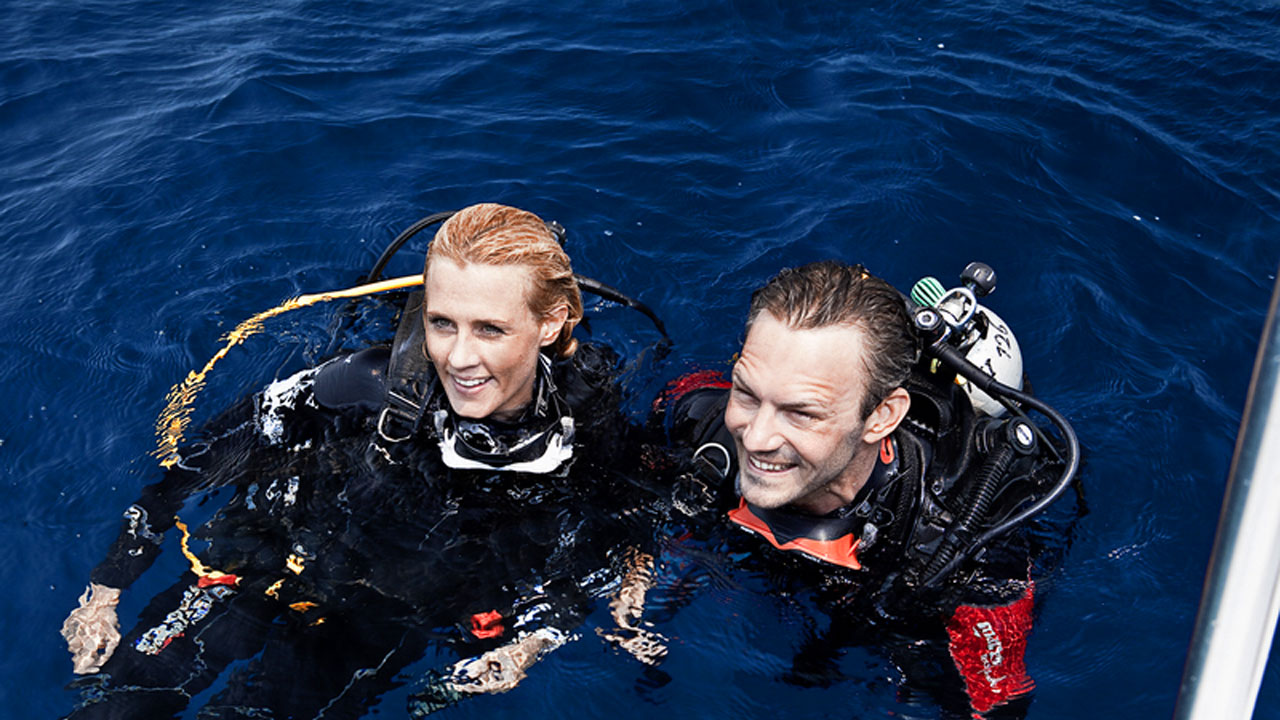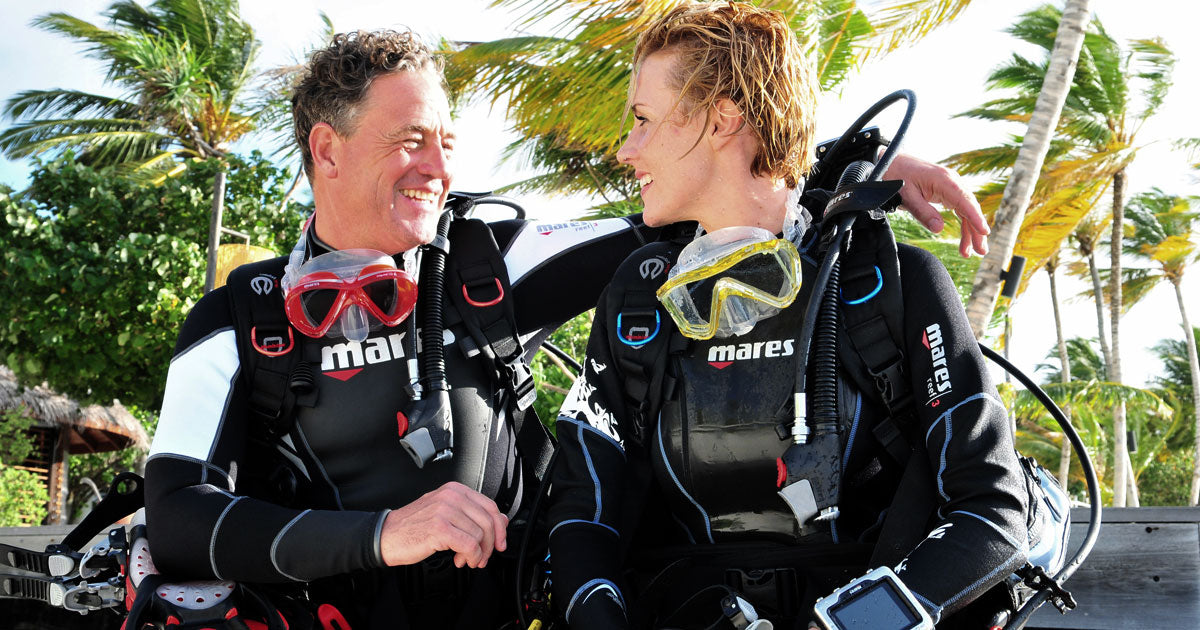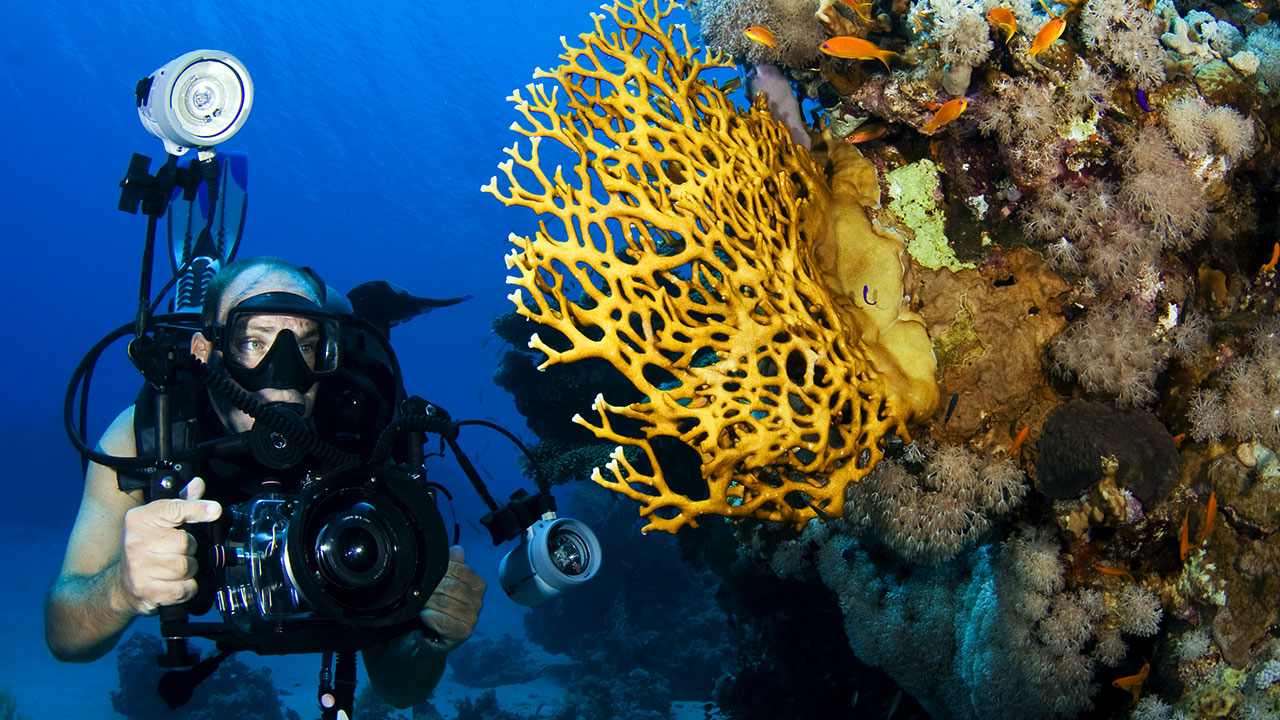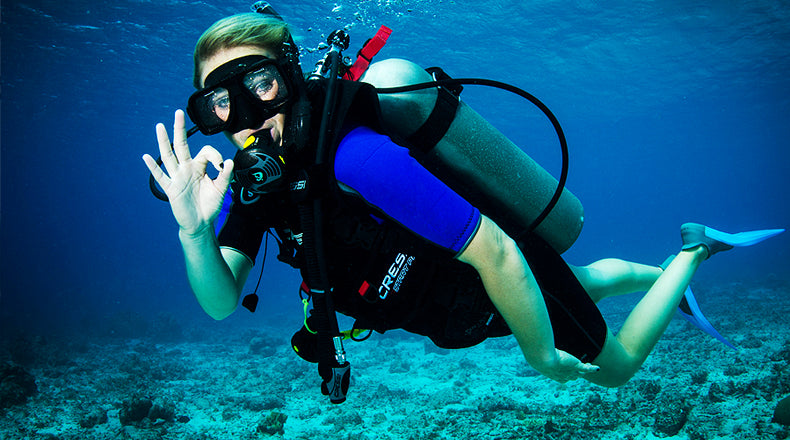Beginners Guide to Night Diving

Night diving is one of those things that are fascinating and frightening at the same time. Many divers, afraid of what might be lurking beyond the beam of their dive light, are hesitant to go down into dark waters. However, just a bit of mental adjustment, training, and proper dive equipment can make night driving an incredibly rewarding activity. In fact, some divers enjoy the tranquility of diving in darkness and the slower pace of a night dive so much that it becomes their favorite type of diving.
Once you recognize your concerns and then arm yourself with the skills and knowledge to combat your fears, you’ll be ready to enter the world of night diving. Here are a few pieces of advice that may help you along the way.
Training for Night Diving
Enrolling in a night diving specialty course is an effective way to learn how to deal with the physical aspects of night diving and overcome the mental pressure. Most popular certification agencies such as PADI, NAUI, SDI and SSI do offer a night dive course. The course usually includes proper breathing techniques, communication underwater at night, dive planning and navigation in low visibility, as well as tips on selecting and using a dive light and other accessories vital to safe night diving. You will also have a chance to experience your first few night dives along with a dive instructor, who will help you get the most from the dives, and show how to handle any issues that may arise.
Mental Preparation
As we have mentioned before, diving at night may cause quite a bit of stress, most of which, of course, stems from the fear of the unknown. Depending on the diver’s familiarity with the area, night diving procedures, the equipment he/she is going to use and the nature of marine life, this sense of anxiety and mental pressure can last from the planning phase throughout the entire dive.
A good way to deal with stress and avoid potential emergencies during the dive is to prepare and plan for it thoroughly. The more you know about night diving and the environment you’re going to be diving in, the more confidence you’ll have in your abilities to dive safely. Don’t forget to plan all of the emergency procedures (low air, out of air, entanglement, missing buddy, disorientation, failed dive light(s), etc). This way, even if something goes wrong, you will know how to deal with it.
Mental visualization is another powerful tool for night divers. Close your eyes, breathe in a relaxed, normal fashion and try to imagine every aspect of your night dive. Picture how you assemble your gear, enter the water, and enjoy your underwater experience. You may also mentally practice to perform your emergency procedures. For example, imagine that your light goes dead, picture how you calmly reach for the backup light and turn it on.
If possible, gear up and visualize your night dive while breathing underwater in the shallow end of a darkened swimming pool.
Equipment
Night diving does not require a lot of special equipment. The only additional piece of gear that you will absolutely need is a dive light. Every night diver should carry at least two dive lights: primary and backup. Both lights should be dependable and powerful enough to allow you to find your way around the dive site. The primary light is usually brighter than the backup one, however, when it comes to bulb intensity, higher is not always better. An excessively bright light is often an overkill for a recreational diver. A small light of average intensity proves to be much better as it is easier to carry and doesn’t scare nocturnal creatures. As for the beam, you can go with either a narrow or a wide one. Narrow beams shed a lot of light in a small, focused area, while wide beams illuminate a larger area, but not as brightly. Another factor to consider is the light’s battery. Rechargeable torches, are more expensive, but also more environmentally friendly.
In addition to your primary and backup torch it is recommended that you get a snap light or a marker light. This small light stick will make it easier to find your buddy or let others spot you from the distance. If you are using a surface buoy, a similar beacon should be attached to it.
Your exit point also needs to be marked with light. If you are diving from a boat, this would usually be a strobe suspended beneath the boat. When going on a shore-based dive, you would need to place or identify two light sources, that when lined up guide you back to an exit point. Keep in mind though, in case you use existing light sources, make sure you don’t use lights from houses, or cars, as they can be turned off or move. If you are placing your own lights, do not use red or green lights to avoid interfering with nautical navigation.
Another piece of equipment you may use for an added margin of safety is a surface signalling device. In an event that you surface away from your exit point and cannot make it back, a safety sausage with a light attached to it, will make it much easier for your team to notice you on the dark horizon.
General Recommendations
All the basic skills and rules used for diving during daylight hours apply to diving after the dusk as well, however, there are a few techniques and procedures unique to night diving.
1. When planning a night dive try to choose the dive sites you’ve already dived in daylight. This will not only make navigation easier, but also allow to see how a familiar dive site changes when the sun goes down.
2. Pick a dive spot with as little current as possible, and no surf or other obstacles that can interrupt the dive.
3. Make sure that the chosen spot is easily accessed when it is dark.
4. Consider going diving at twilight or just before dawn. If you go at twilight, it will be easier for you to adjust to the darkness gradually, whereas dives before dawn allow you to watch the beauty of marine life when they awaken.
5. Always check the batteries in your primary, backup and personal locator lights before gearing up.
6. Plan for a shorter and slower dive as compared to daytime diving.
7. If your first night dive is from a boat and you are anxious, consider entering the water by climbing down the ladder rather than striding in from the swim platform or gunwale.
8. Descend feet first using a descent or anchor line to avoid vertigo. Take your time and proceed at your own pace.
9. Don’t try to cover too much territory. This will simplify the underwater navigation, as well as give you more time to examine the area and view the little things that come out after the dark.
10. Never shine the light into your buddies or any other diver’s eyes. If you want to get their attention, shine it on their body or on the bottom in a quick back and forth or circular motion.
11. Try not to point the light beam directly at marine animals, they can easily be blinded and disoriented by bright strobes and torches.
Night diving can be a thrilling and fascinating activity. So what is stopping you? If you are interested in getting certified, contact us or your local dive education facility for more information.




